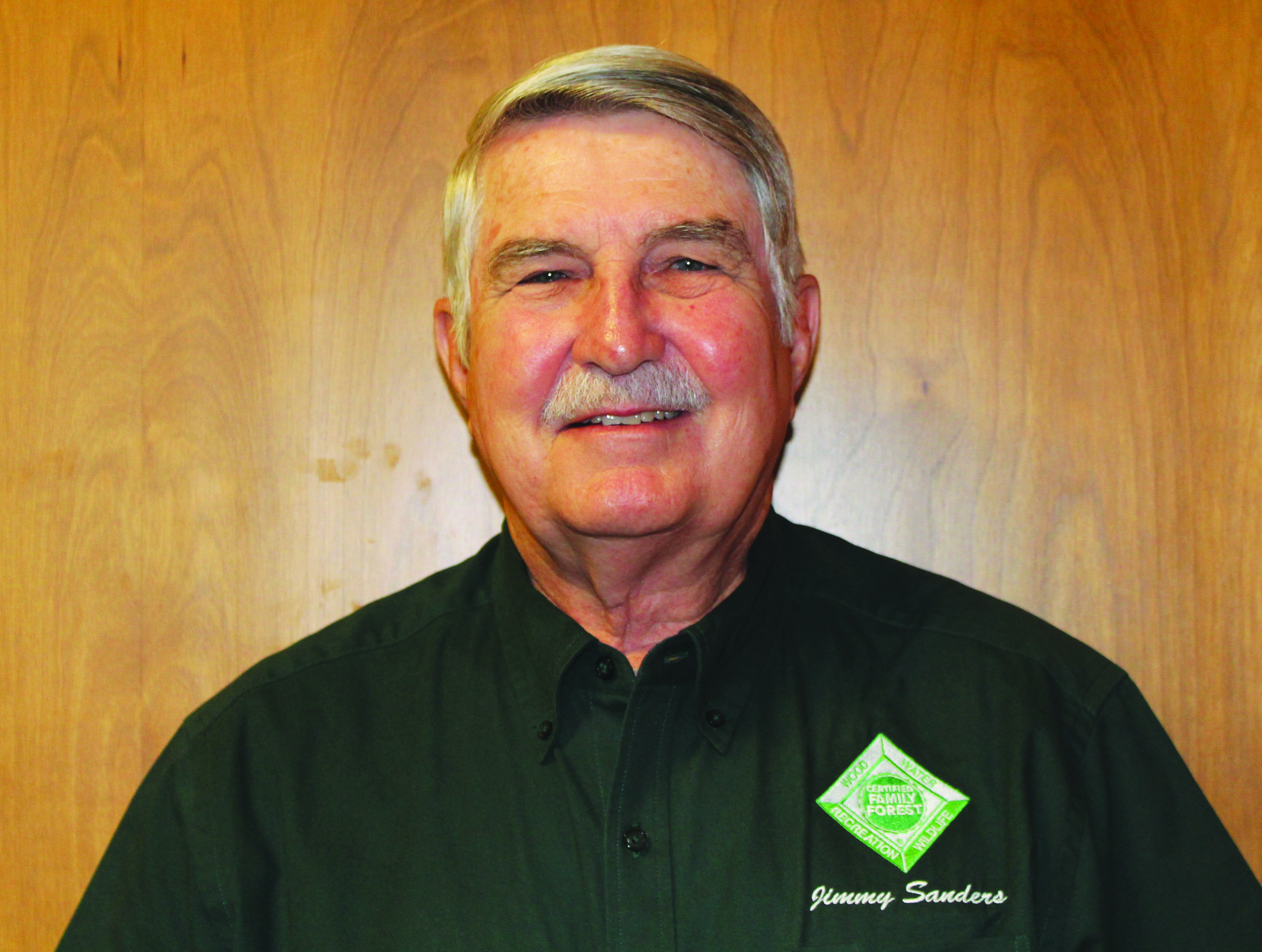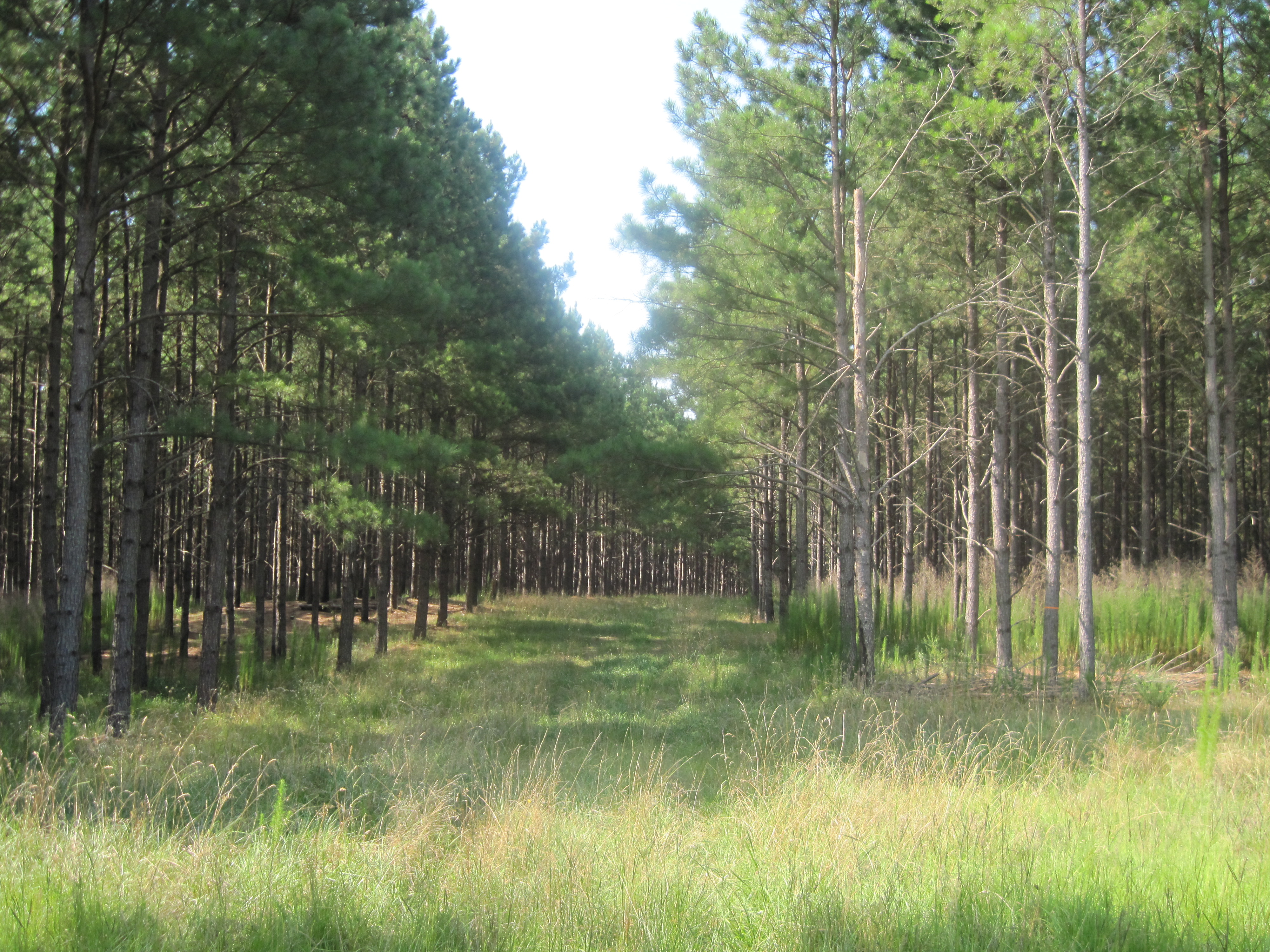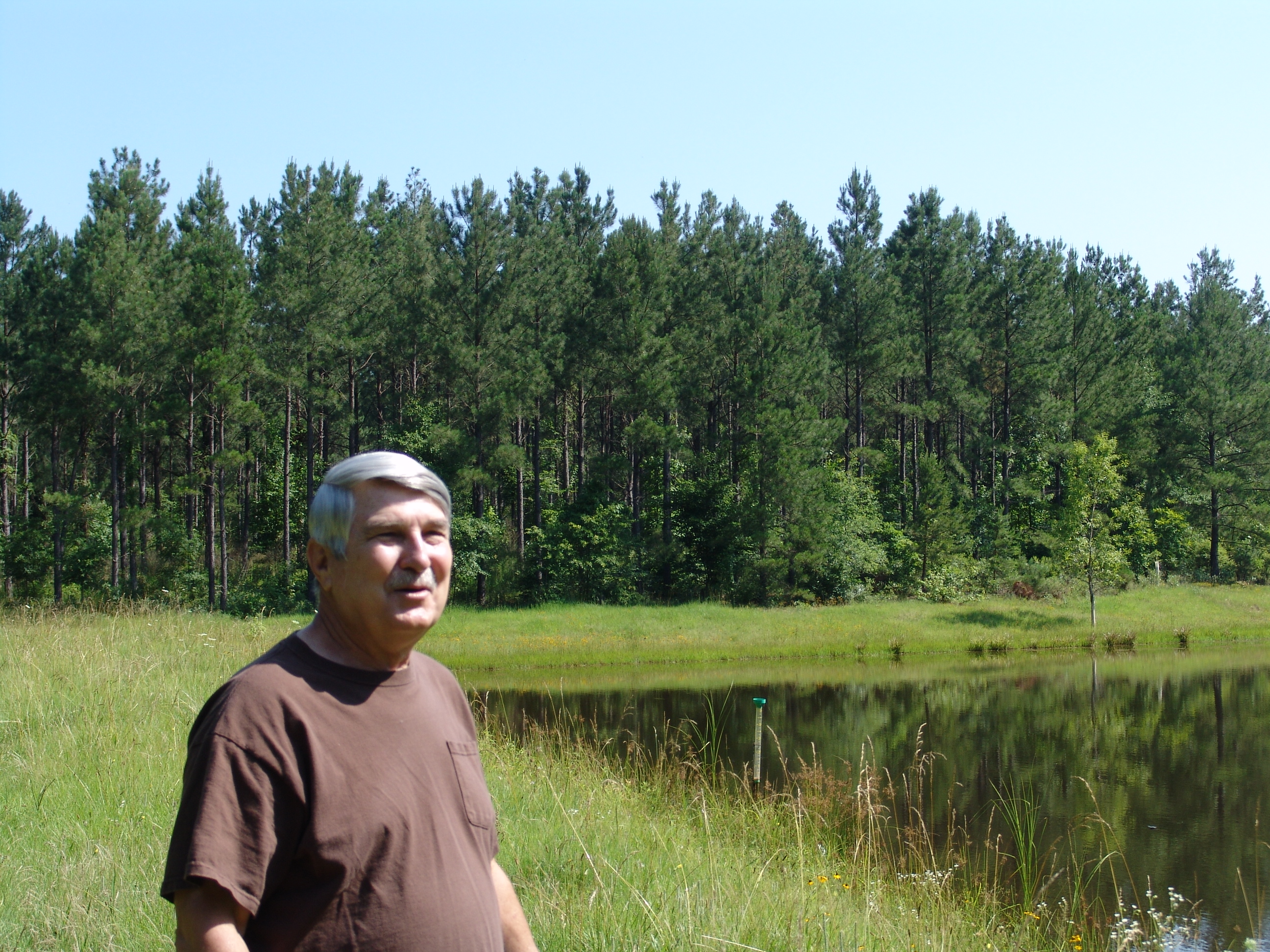South Nominee: Jimmy Sanders from South Carolina
What makes them outstanding?
Jimmy Sanders is a true
conservationist, taking meticulous care of his three Tree Farms. From careful stabilization of roads and
firebreaks to diligent control of invasive species, Jimmy sets an example for
others to follow. In fact, he hosted a
tour for Master Tree Farmer participants on his property, showing these
students the results of his land stewardship.
He excels at promoting conservation to audiences both young and
old. For over 25 years, he has helped
with the Woodland Clinic, a competition designed to encourage youth to learn
about forestry and the natural resources around them. Jimmy has also written numerous articles and
has appeared on radio and TV extolling the value of soil conservation. He is very active in Tree Farm and served as
the Chair of the South Carolina Certified Tree Farm Committee during 2017.
careful stabilization of roads and
firebreaks to diligent control of invasive species, Jimmy sets an example for
others to follow. In fact, he hosted a
tour for Master Tree Farmer participants on his property, showing these
students the results of his land stewardship.
He excels at promoting conservation to audiences both young and
old. For over 25 years, he has helped
with the Woodland Clinic, a competition designed to encourage youth to learn
about forestry and the natural resources around them. Jimmy has also written numerous articles and
has appeared on radio and TV extolling the value of soil conservation. He is very active in Tree Farm and served as
the Chair of the South Carolina Certified Tree Farm Committee during 2017.
Tree Farmer story
Jimmy Sanders truly believes in the sustainable, multi-use management of his property, taking an active role in both planning and implementing conservation practices. His conservation ethic was instilled in him at an early age by his father, who was a Wildlife Conservation Officer. His dad took Jimmy with him as he worked to re-establish wild turkeys in the Piedmont region of South Carolina. This experience led him to pursue a career with the Natural Resources Conservation Service, with whom he served as a Soil Conservationist, a Natural Resource Specialist, and as a District Conservationist.
Jimmy acquired his three properties over a 25-year period, beginning in 1988 when he inherited 125 acres in Union County which was the family home place where he was raised. He also purchased 168 acres in Saluda County in 1988 and an additional 87 acres in 2008. His latest purchase was a 147-acre tract in Abbeville County which he bought in 2011. Since acquiring these properties, Jimmy has actively managed them, including several thinnings, a final harvest, tree planting, prescribed burning, firebreak construction, and road maintenance.
In addition to diligently caring for the stands of trees on his Tree Farms, Jimmy manages for wildlife. Examples of this type of work includes planting fruit and mast trees in and around wildlife openings and installing wood duck boxes. One of the challenges that he has faced in managing his Tree Farms has been invasive species. Jimmy has used herbicides to control several types of invasive plants and has been successful at controlling invasive animals such as wild hogs and beavers.
Jimmy Sanders has been active
in Tree Farm for a considerable length of time and participated in South
Carolina Tree Farm Committee's member recruitment drive during 2013. He also took part in numerous Tree Farm
Legislative Days at the state capitol, advocating for Tree Farming. Jimmy served as Chair of the South Carolina
Certified Tree Farm Committee during 2017, providing sound leadership at the
state level.
South
Carolina Tree Farm Committee's member recruitment drive during 2013. He also took part in numerous Tree Farm
Legislative Days at the state capitol, advocating for Tree Farming. Jimmy served as Chair of the South Carolina
Certified Tree Farm Committee during 2017, providing sound leadership at the
state level.
He has served as a leader and role model in other ways as well. Jimmy was involved in organizing the Upper Savannah Land Trust which currently holds more than 30,000 acres in conservation easements and has served as a Board Member since 2003. He was instrumental in the completion of a wooden bridge project on an unpaved Abbeville County road. He also wrote an Environmental Justice Grant for loggers to provide them with tire mats for low impact logging operations.
Jimmy is an active member of several conservation organizations including the Forestry Association of South Carolina, for whom he served as Treasurer and is currently the Chair-elect. He served as the President of the Greenwood Forest Landowners Association and is a member of the Abbeville Forest Landowners Association, the Saluda Forest Landowners Association, and the Soil & Water Society.
He has promoted an awareness of conservation through his participation for over 25 years in the Woodland Clinic, a competition that engages youth in forestry skills knowledge. This event provides youth an opportunity to learn about forestry and natural resources and helps instill in them an appreciation for the proper management of these resources.
Jimmy Sanders is a true conservationist who not only practices sustainable forestry on his Tree Farms, but also takes full advantage of opportunities to spread the message of Tree Farming far and wide. Through his leadership and example, numerous landowners and young people have a greater understanding and respect for conservation.
For the following areas describe how the landowner's management addresses it
Wood: Jimmy has conducted numerous afforestation/reforestation and harvesting operations on his Tree Farms during the last 30 years or so. He planted three fields/pastures totaling 150 acres as follows: 56 acres in 1988, 23 acres in 1990 and 71 acres in 1994. He thinned 79 acres in 2005; 71 acres in 2008; 144 acres in 2012; 19 acres in 2013; and 80 acres in 2014. He conducted a final harvest on 65 acres in 1995, site prepared this area in 1996, and planted it in 1997. He conducted a final harvest on 9 acres in 1997, site prepared this area in 1998, and planted it in 1999. He conducted a final harvest on 60 acres in 2010, site prepared this area in 2011, and planted it in 2012. He carried out timber stand improvement using herbicides to control understory vegetation, which included invasive species, on 80 acres in 2013. He has also conducted several prescribed burns on his Tree Farms.
 Water: Due in part to his
background as a Soil Conservationist with the Natural Resources Conservation
Service, Jimmy places a large emphasis on protecting water quality. He is diligent to quickly seed roads and
firebreaks after they have been installed.
He invests a lot of time and energy each growing season mowing these
areas to ensure the health of the established vegetation. Jimmy has also installed water bars on his
roads where needed to reduce the likelihood of erosion. He works hard to maintain the integrity of
his pond dams with the realization that their breach would cause major impacts
downstream.
Water: Due in part to his
background as a Soil Conservationist with the Natural Resources Conservation
Service, Jimmy places a large emphasis on protecting water quality. He is diligent to quickly seed roads and
firebreaks after they have been installed.
He invests a lot of time and energy each growing season mowing these
areas to ensure the health of the established vegetation. Jimmy has also installed water bars on his
roads where needed to reduce the likelihood of erosion. He works hard to maintain the integrity of
his pond dams with the realization that their breach would cause major impacts
downstream.
Wildlife including threatened and endangered species: Jimmy actively maintains several wildlife food plots and has installed several wood duck boxes near his ponds. The prescribed burning that he has carried out has benefited numerous species of wildlife including deer, turkey, and squirrels. His control of invasive species, both plant and animal, has also aided indigenous wildlife species. He provides a variety of habitat types on his Tree Farms, purposely managing for hardwood species on approximately 20% of his acreage. These hardwood areas also serve as pollinator habitat, since the flowers of many of these trees are a valuable source of nectar.
Recreation and Aesthetics including special sites: Jimmy's well-maintained network of firebreaks and roads provides excellent access for recreation. His sustainable forest management has resulted in improved aesthetic appeal of his Tree Farms, with forested stands of varying age, density, and species composition. As a result of prescribed burning, several of his stands have a park-like well-groomed appearance. In addition, the hardwood buffers that he manages near streams and in upland areas on his Tree Farm provide a pleasing visual contrast to his pines.


